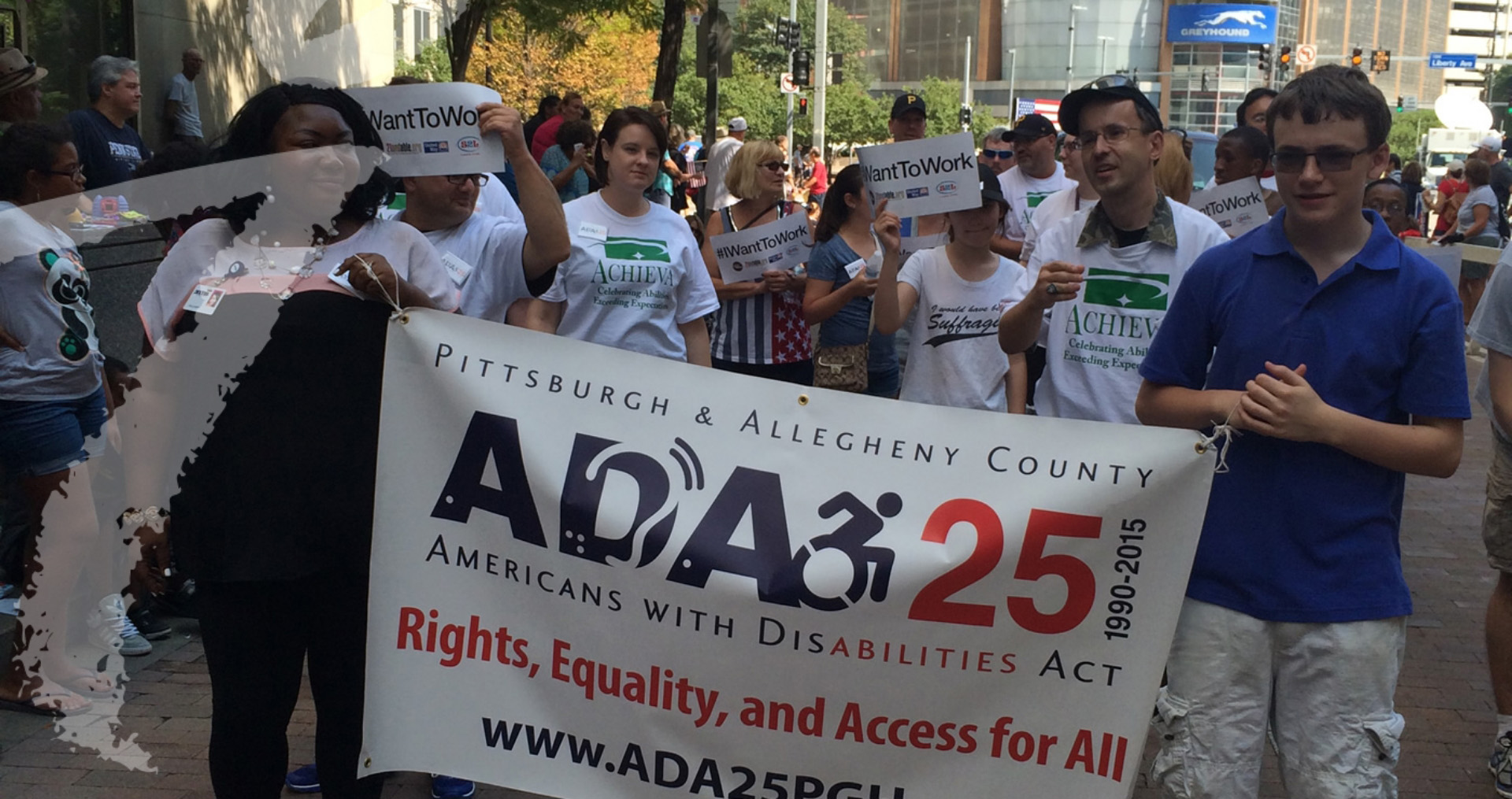Yesterday afternoon I learned about Tony, a 29-year-old man with autism who lives in a group home in Allegheny County. Tony loves his family, his friends and his routine. Every day the direct service professionals (DSPs) who live with him walk him through a “social story” reminding him about the coronavirus, handwashing, social distancing. It was pretty hard for Tony to adjust to wearing a mask, but now he’s more comfortable with it, especially knowing that wearing masks helps to keep people safe and healthy. His mom, Marie, really misses him. Tony isn’t very verbal, so they’ve only had short phone conversations. She hasn’t been able to hug or kiss him since March 10.
Marie can’t say enough good things about the agency that runs Tony’s group home, and the staff who support her son every day. “They are heroes! If I could choose, I’d want those three women to be with Tony for the rest of his life. He loves them, and they love him. They know how to stay calm and keep him calm, which is a good thing because he’s big and strong!” The extra support from his DSPs allow Tony to live in the community. He can hang out at home, grocery shop, spend time with friends and have a full life, which is what every parent wants for their children.
The disability serving agencies that support Tony and hundreds of thousands of others like him, operated with a great deal of heart but with modest financial reserves before the coronavirus crisis. Today, these services are in peril. Two interconnected issues have pushed these agencies to the brink of collapse: a severe shortage in direct service professionals and rapidly mounting expenses associated with COVID-19. If disability serving agencies fail or shut down, it will have catastrophic impact for the people they serve, most of whom have no other safety net. This warrants a closer look at the issues underlying the current crisis.
First, there is a national workforce crisis in the field of direct support professionals that predated COVID19, and that has only gotten worse in the past two months. DSPs are the heroes that help people with disabilities get out of bed, get dressed, care for feeding tubes and catheters, administer medications, help people to eat and to do myriad other daily tasks. They provide attendant care, staff group homes and day programs, work as job coaches and aids. There are more than 55,000 direct service professionals across Pennsylvania, helping people with disabilities to live with dignity and as much independence as possible. These jobs are meaningful and may be personally fulfilling, but they are also hard, and they don’t pay very well. These essential professionals earn approximately $13.20/hour. Right now, DSPs could make more collecting unemployment than going to work. And yet most keep showing up every day because they are deeply committed to the people they support. . There is a high turnover rate (more than 30% annually) and low wages mean that many work full time but still need to rely on public benefits to make ends meet for their families. And yet these jobs are critically important. Gaps in coverage by direct service professionals mean that people with disabilities can be left alone in bed, without food or medicine; many have no back-up plans for care and little independent ability to reach out for help.
The second force accelerating the current crisis is financial. Disability serving agencies in Pennsylvania report a 28% increase in expenses to protect their vulnerable clients from COVID-19. In addition to purchasing personal protective equipment and cleaning supplies and services, residential programs have needed to increase staffing to fill the hours that their clients used to spend at workforce or recreational programs. Most have initiated pay incentives to keep DSPs coming to work, But right now, these agencies have no way to pay for these necessary expenses. Medicaid, the funding stream that pays for virtually all disability services, has not adapted to the crisis and has not provided any emergency support to cover these unexpected costs. Some group home providers have less than three days cash on hand, which means they might not make payroll. Without additional funding, disability providers will need to shut down services, and the people with disabilities they currently serve will end up in hospitals, nursing homes or homeless shelters.
We have a responsibility to the hundreds of thousands of people with disabilities like Tony who rely on assistance from disability serving agencies for the most basic daily tasks. Let’s make sure that Tony has the care we would want for a family member who needs it.
Watch the webinar or find out what you can do to help at: Fix the DSP Crisis

Services for adults with intellectual disabilities and autism are on the brink of collapse
Back to News
